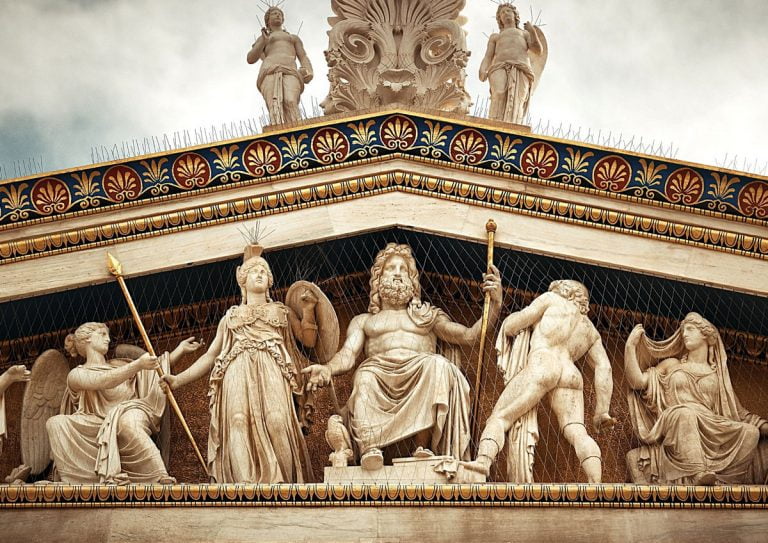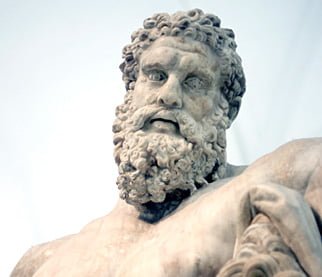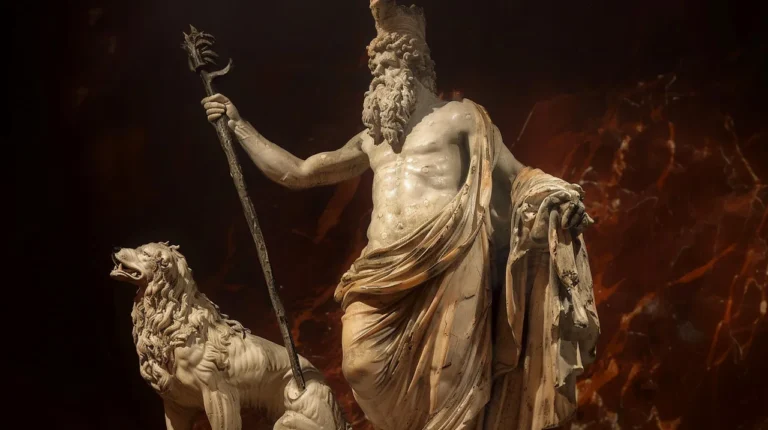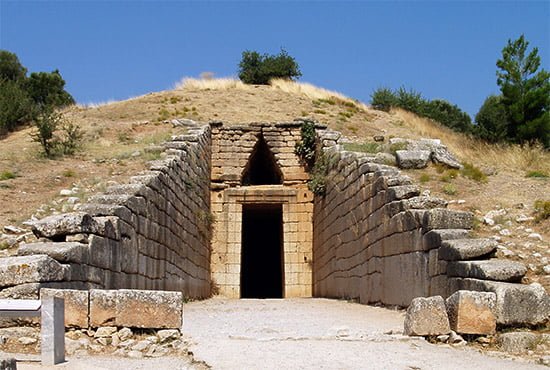Cerberus, the guardian of Hades
Cerberus was one of the most known monsters in Greek Mythology. Cerberus was the monstrous dog, guardian of the Hades.
Cerberus was the offspring of Echidna and the snake-bodied Typhon. According to other Greek myths, Cerberus was associated with Hydra.
Featured in both the Greek and the Roman mythology, Cerberus was a multi-headed hound (usually three-headed), which guarded the gates of Hades, to prevent those who had crossed the river Styx from escaping.
Cerberus fawned on the dead as they entered, but would savagely eat anyone trying to pass back through the gates and return to the land of the living.
The Family Tree of Cerberus
- Father of Cerberus: Typhon
- Mother of Cerberus: Echidna
* In some myths, Cerberus was also associated with Hydra and Sphinx. - Brothers: The Lernaean Hydra and Orthrus (double headed dog).
The Name Cerberus
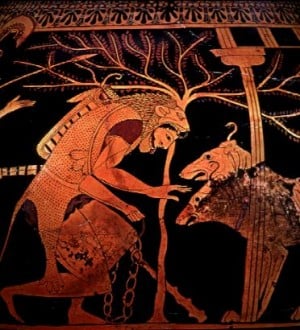 The name “Cerberus” is a Latinised version of the Greek Kerberos (pronounced as Kerveros, Κέρβερος), which could be related to the Sanskrit word sarvara, used as an epithet of one of the dogs of Yama, from a Proto-Indo-European word *ḱerberos, meaning “spotted”.
The name “Cerberus” is a Latinised version of the Greek Kerberos (pronounced as Kerveros, Κέρβερος), which could be related to the Sanskrit word sarvara, used as an epithet of one of the dogs of Yama, from a Proto-Indo-European word *ḱerberos, meaning “spotted”.
The mythologists have speculated that the association of the monster with a dog was first made in the city of Trikarenos in Phliasia.
Cerberus in Greek Mythology
Cerberus featured in many works of ancient Greek mythology and Roman literature and in works of both ancient and modern art and architecture, although, the depiction and background surrounding Cerberus often differed across various works by different authors of the era.
The most notable difference is the number of Cerberus’ heads: most sources describe or depict three heads; others show it with two or even just one; a smaller number of sources show a variable number, sometimes as many as fifty.
The common theme was constant, with a dragon tail and snakes writhing from Cerberus’ body and its untamed savagery who only obeyed the voice of Hades or Persephone.
Cerberus in the Greek and Roman Literature
Cerberus has been featured in many prominent works of the Roman literature, most famously in Virgil’s Aeneid, and the story of Orpheus in Plato’s Symposium, and in Homer’s Iliad, which is the only known reference to one of Heracles’ labours which first appeared in a literary source.
In the Aeneid Cerberus was put to sleep after being tricked into eating drugged cakes and Orpheus put the creature to sleep with his music. Capturing Cerberus alive was the twelfth and final labour of Heracles.
In Dante Alighieri’s Inferno, Canto VI, Cerberus is found in the Third Circle of Hell, where he guards and rends in to pieces those who have succumbed to gluttony, one of Roman Catholicism’s seven deadly sins.
The Myth of Cerberus and Hercules
According to the myth of Cerberus and Hercules, Cerberus was carried up from Hades by Hercules in one of his Labors. This was achieved only after a protracted battle in which the hero Hercules was mauled by the Cerberus’ fangs and menaced by snakes growing from his back and tail.


